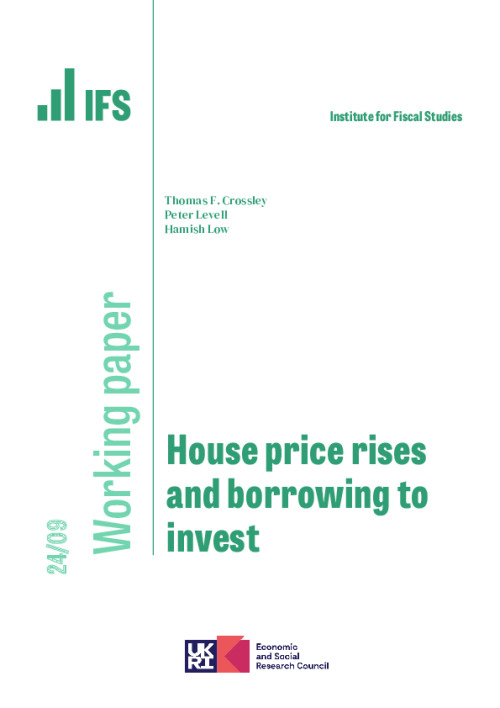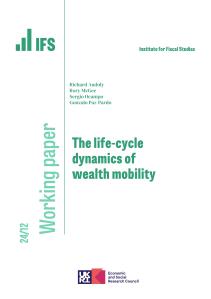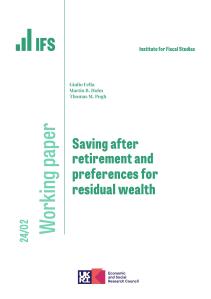Downloads

Download working paper PDF
PDF | 962.05 KB
Household borrowing and spending rise with house prices, particularly for leveraged households, but household spending is not consumption. We propose a borrow-to-invest motive by which house price gains affect household spending on residential investment: rational, leveraged households have an incentive to make additional residential investments when house prices rise. Credit constraints then matter through reducing access to leveraged returns and so reducing lifetime resources, rather than through consumption smoothing. We test this motive by comparing responses in different categories of spending across more and less leveraged households. We find strong evidence of the borrow-to-invest motive in UK data.
Authors

Research Fellow University of Michigan
Tom is a Research Fellow at IFS, a Research Professor for the Institute for Social Research at the University of Michigan.

Associate Director
Peter joined in 2009. He has published several papers on the microeconomics of household spending and labour supply decisions over the life-cycle.

Research Fellow University of Oxford
Hamish is the James Meade Professor of Economics at the University of Oxford, a Professorial Fellow of Nuffield College and a Research Fellow at IFS.
Working Paper details
- DOI
- 10.1920/wp.ifs.2024.0924
- Publisher
- Institute for Fiscal Studies
Suggested citation
T, Crossley and P, Levell and H, Low. (2024). House price rises and borrowing to invest. 24/09. London: Institute for Fiscal Studies. Available at: https://ifs.org.uk/publications/house-price-rises-and-borrowing-invest-1 (accessed: 30 June 2024).
Grant
More from IFS
Understand this issue

Raising revenue from closing inheritance tax loopholes
18 April 2024

How to grow the economy
24 May 2024

Public investment: what you need to know
25 April 2024
Policy analysis

Making mortgage guarantees permanent will help some first-time buyers, but only if they can afford a bigger mortgage
6 June 2024

How do the last five years measure up on levelling up?
19 June 2024

Pensions: five key decisions for the next government
7 June 2024
Academic research

The intergenerational elasticity of earnings: Exploring the mechanisms
3 June 2024

The life-cycle dynamics of wealth mobility
10 April 2024

Saving after retirement and preferences for residual wealth
18 January 2024